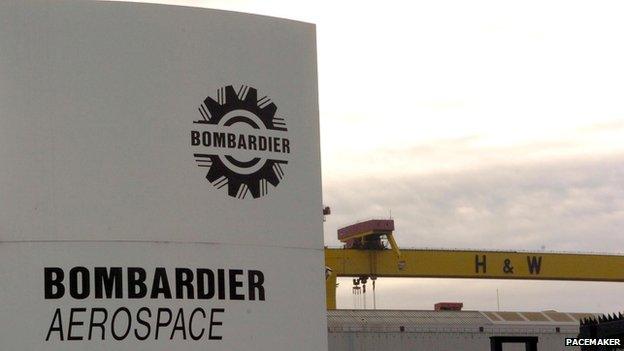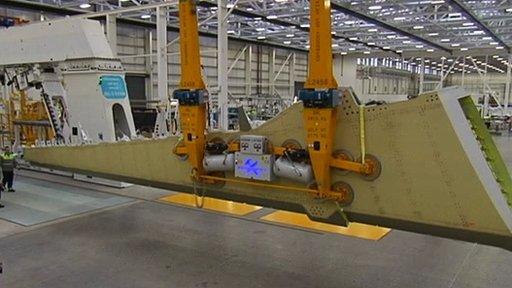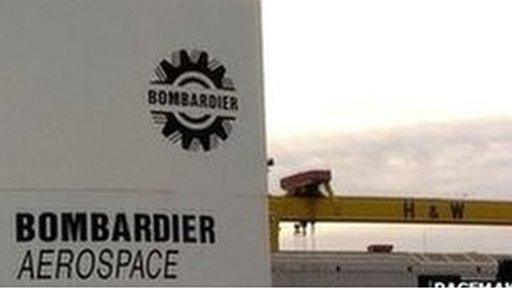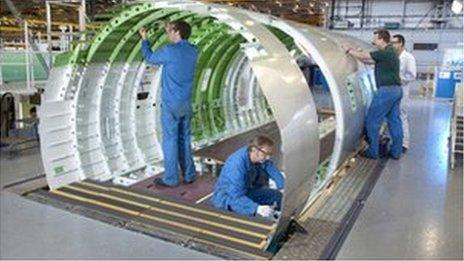Bombardier: Aerospace firm cutting 130 jobs in Belfast
- Published

Bombardier is one of Northern Ireland's biggest employers
Bombardier is planning to cut 130 jobs from its agency and contract workforce in Belfast.
The trade union Unite says that the shop floor jobs are to go from the firm's "complementary labour force".
That part of the workforce is made up from temporary and contract workers and tends to fluctuate depending on demand.
The company confirmed that up to 130 contract workers are being let go and described it as "regrettable".
Last year, Bombardier cut 300 temporary and contract jobs and made 90 people redundant from the permanent workforce.
'Manpower situation'
The aerospace company is one of Northern Ireland's biggest employers.
About 5,000 permanent employees and about 1,000 temporary and contract staff work at its Belfast base.
In a statement, Bombardier said "the need to be competitive" meant the company had to make adjustments to its staffing levels.

Analysis: John Campbell
Bombardier has had a difficult few years with the development of its C Series plane badly delayed and a business jet project suspended.
That has been reflected in its Northern Ireland workforce - Tuesday's announcement brings the number of job losses to more than 500 in six months.
Last week, the Canadian firm appointed a new chief executive in an attempt to find a way out of the current problems.
The new man, Alain Bellemare, needs to convince more airlines to buy the C Series, an aircraft which has cost more than $5bn to develop.

"Our manpower situation is kept under constant review. We have reviewed our latest requirements based on current customer demand," the firm said.
"Up until mid-2014, we had increased our complementary labour force by over 1,000 positions, but lately we have had to reduce this level."
'Job security'
A spokesman for the union Unite said the cuts were "another savage blow" to the company's workforce.
Regional coordinating officer Davy Thompson said: "This announcement highlights the inadequacy of existing employment protection, in particular for that afforded to agency workers who are making up more and more of the Northern Ireland labour force.
"There's a need for Stormont politicians to get serious on action to improve job security protections for workers, particularly within the manufacturing sector where there is a real risk of de-skilling."
- Published10 September 2014

- Published24 July 2014

- Published27 November 2012

- Published12 June 2012
